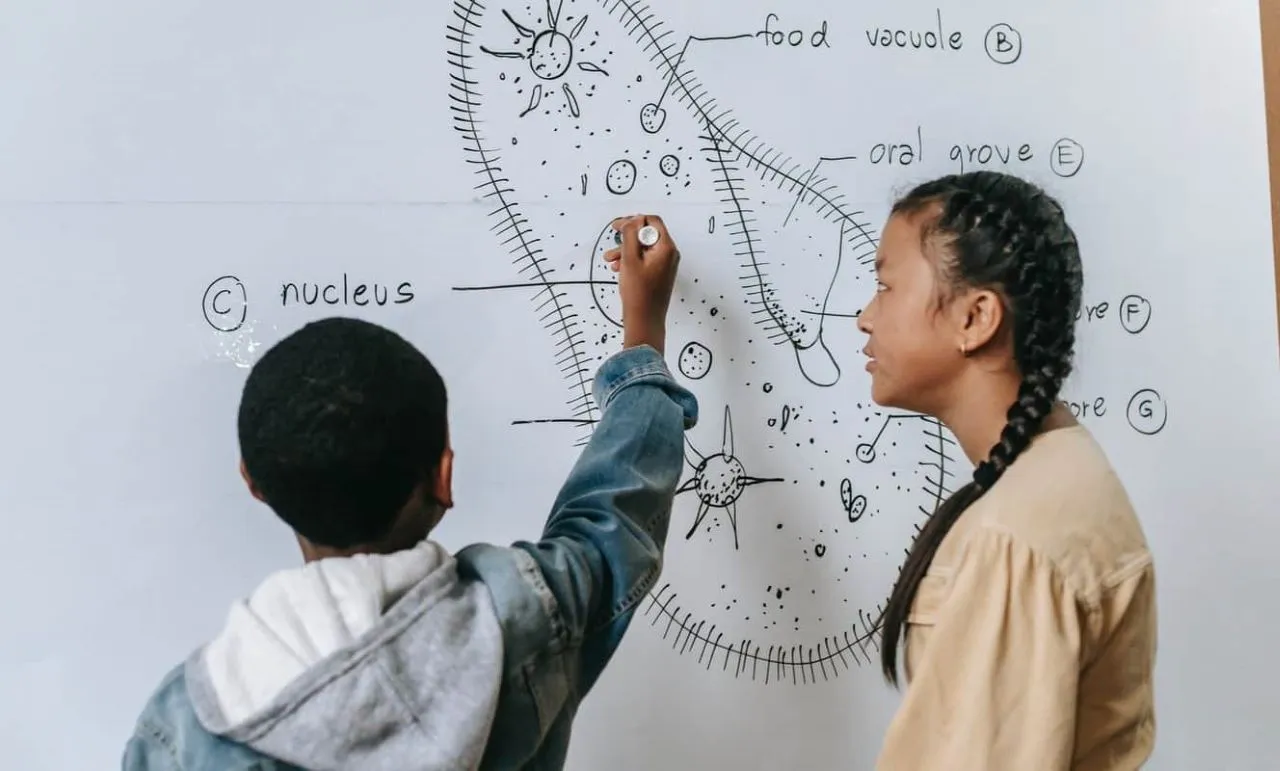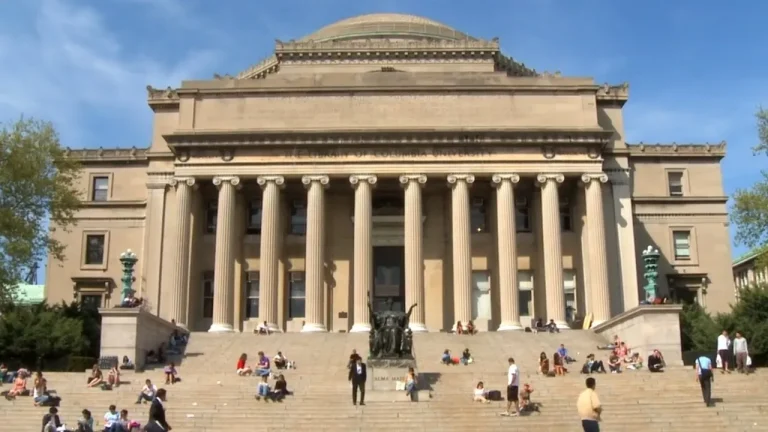Examining The Perception That Science Is Boring
Science is responsible for astonishing technological innovations, groundbreaking discoveries about ourselves and our universe, and radically improving human life. Yet it’s often stereotyped as dry, tedious, and even boring.
In this in-depth article, we’ll explore some reasons why science gets tagged with this characterization and discuss ways to ignite greater enthusiasm and engagement.
If you’re short on time, here’s a quick take: Science can seem boring when taught or presented without real-world context, engaging narratives, or interactivity. But inherently, it’s a creative, collaborative human endeavor aimed at exploring captivating mysteries of nature and existence.
Complex Terminology and Abstract Concepts
Jargon sounds like gibberish
One of the reasons why science can be perceived as boring is the complex terminology used in scientific discussions. Technical terms and jargon can often sound like gibberish to those who are not familiar with them.
Phrases like “mitochondria,” “quantum entanglement,” or “isotopes” may seem overwhelming and uninteresting to the average person. However, it’s important to remember that these terms are simply tools scientists use to describe and understand the world around us.
Once you break through the initial barrier of unfamiliar vocabulary, you’ll find a fascinating world waiting to be explored.
Ideas are theoretical and intangible
Another reason why science may be perceived as boring is that many scientific concepts are abstract and intangible. Ideas such as relativity, evolution, or the Big Bang Theory can be difficult to grasp because they cannot be directly observed or experienced in our daily lives.
However, it is precisely this abstract nature that makes science so intriguing. Through careful observation, experimentation, and mathematical modeling, scientists are able to uncover hidden truths about the universe.
Understanding these abstract concepts can lead to a deeper appreciation of the world we live in.
Requires background knowledge to appreciate
Science can sometimes feel boring because it often requires a certain level of background knowledge to fully appreciate. Without a basic understanding of scientific principles and theories, it can be challenging to engage with scientific discussions or comprehend scientific articles.
However, this shouldn’t discourage anyone from exploring the world of science. There are many resources available, such as books, documentaries, and online courses, that can help bridge the gap and provide a solid foundation for understanding complex scientific concepts.
With a little effort and curiosity, anyone can develop an appreciation for the wonders of science.
Teaching Focused on Memorization
One of the main reasons why science is perceived as boring is due to a teaching approach that is heavily focused on memorization. Instead of engaging students in hands-on activities and critical thinking, many science classes simply require students to memorize a plethora of terms and concepts.
This can make the subject seem dry and uninteresting, leading to a lack of enthusiasm among students.
Repeating terms rather than doing
In these classes, students often find themselves spending hours memorizing scientific terms and definitions without truly understanding their meaning or purpose. This repetitive and rote learning approach can make science feel like a mundane task rather than an exciting opportunity for exploration.
Students may become disengaged and lose interest in the subject altogether.
Passive learning styles
Another factor contributing to the perception that science is boring is the prevalence of passive learning styles in the classroom. Traditional lectures and textbook readings dominate the science curriculum, leaving little room for hands-on experimentation or interactive learning experiences.
This passive approach fails to capture the curiosity and creativity of students, resulting in a lack of engagement and interest.
Lacking experimentation and discovery
Science is inherently a field of experimentation and discovery. However, many science classes lack opportunities for students to actively participate in experiments or conduct their own research. This absence of hands-on experiences robs students of the chance to truly engage with the subject matter and witness the excitement of scientific discovery firsthand.
To combat the perception that science is boring, educators need to shift their focus from memorization to active learning. By incorporating more hands-on experiments, group discussions, and real-world applications, students can develop a deeper understanding and appreciation for the wonders of science.
Websites like Science Buddies and National Geographic Science provide excellent resources for teachers and students to explore and engage with science in a fun and interactive way.
Perceived Lack of Creativity
Following the scientific method
The perception that science is boring often stems from the belief that it is a rigid and uncreative field. However, this couldn’t be further from the truth. In fact, science is rooted in creativity, as it requires scientists to think outside the box and come up with innovative solutions to complex problems.
The scientific method, which is the foundation of scientific inquiry, encourages creativity by emphasizing the importance of observation, experimentation, and analysis. Scientists are constantly pushing the boundaries of knowledge and exploring new frontiers, and this requires a great deal of imagination and creativity.
Constraint of protocols
Another reason why science is sometimes perceived as boring is due to the strict protocols and procedures that scientists must follow. These protocols are in place to ensure that experiments are conducted in a controlled and reproducible manner, which is essential for scientific accuracy and reliability.
While these protocols may seem rigid and limiting, they are necessary for maintaining the integrity of scientific research. However, it is important to note that within these protocols, scientists have the freedom to design experiments and explore new hypotheses.
The constraints of protocols should not be mistaken for a lack of creativity, but rather as a framework within which creativity can thrive.
Misconception it’s not imaginative
One of the biggest misconceptions about science is that it is not imaginative. People often associate imagination with artistic pursuits, such as writing or painting, and fail to see the imaginative aspects of scientific inquiry.
However, science is a highly imaginative field, as scientists are constantly envisioning new possibilities, formulating hypotheses, and developing theories. The process of scientific discovery requires imagination and the ability to think critically and creatively.
It is through this imaginative approach that scientists are able to make groundbreaking discoveries and advancements that shape our understanding of the world.
Presentation Without Narrative
One of the reasons why science is often perceived as boring is because presentations lack a compelling narrative. Many times, scientific information is presented in a dry and factual manner, without any engaging storytelling elements.
While facts and figures are important, they can easily become forgettable without a compelling narrative to tie them together.
Just facts without storytelling
When scientific information is presented without a narrative, it can feel like a barrage of facts and figures that are difficult to connect to real-world applications. Without a story to guide the audience through the information, it can be challenging for them to fully grasp the significance and relevance of the scientific concepts being presented.
As a result, the presentation may come across as dull and uninteresting.
Forgettable lecturing
Traditional lecturing methods can also contribute to the perception that science is boring. Lectures that rely solely on a teacher or presenter talking at the audience for extended periods of time can quickly become monotonous and disengaging.
Without interactive elements or opportunities for audience participation, the information being presented can easily be forgotten or misunderstood.
Disjointed information delivery
Another factor that can make science seem boring is the delivery of information in a disjointed manner. When concepts are presented in isolation, without clear connections to other related topics, it can be difficult for the audience to see the bigger picture.
This fragmented approach to information delivery can leave the audience feeling confused and disinterested.
It is important for science educators and communicators to recognize the importance of storytelling and engaging presentation methods. By incorporating narratives, interactive elements, and clear connections between concepts, science can be presented in a way that captivates and excites audiences.
When presented in an engaging and relatable manner, science has the potential to be anything but boring.
Not Relatable to Daily Life
One of the reasons why some individuals perceive science as boring is because they find it difficult to relate to their daily lives. Science is often associated with complex concepts and theories that seem abstract and disconnected from their observable world.
The language used in scientific research papers and textbooks can be intimidating and hard to understand, making it challenging for people to see the relevance of science in their everyday experiences.
Abstract from observable world
Scientific concepts and theories often deal with phenomena that are not directly observable in our daily lives. For example, quantum mechanics, which is a branch of physics, explores the behavior of particles at the atomic and subatomic level.
While this field of study has revolutionized technology and our understanding of the universe, it can be challenging to grasp its significance when it seems so far removed from our everyday experiences.
However, it is important to note that science is not limited to abstract concepts. There are many branches of science, such as biology and chemistry, that are highly relatable to our daily lives. For instance, understanding the process of photosynthesis and how it contributes to the growth of plants can help us appreciate the beauty and importance of nature in our surroundings.
Difficulty seeing personal relevance
Another reason why science may be perceived as boring is the difficulty in seeing its personal relevance. People may struggle to understand how scientific discoveries and advancements directly impact their own lives.
They may wonder, “How does studying the behavior of stars or the properties of chemical compounds affect me?”
However, it is crucial to recognize that science is all around us and influences various aspects of our lives. From the technology we use daily to the medical breakthroughs that save lives, science plays a fundamental role in shaping our world.
For example, advancements in medical science have led to the development of vaccines that protect us from deadly diseases, and technological innovations have revolutionized communication and transportation.
Appears removed from interests
Additionally, science may be perceived as boring because it appears to be removed from people’s personal interests. Some individuals may have a preference for art, literature, or other subjects that they find more engaging and enjoyable.
This preference can lead to a disinterest in scientific topics, as they may not align with their personal passions and hobbies.
However, it is essential to recognize that science is not limited to a narrow set of topics. It encompasses a wide range of fields, including astronomy, biology, chemistry, physics, and more. Each of these disciplines offers unique opportunities for exploration and discovery, catering to different interests and passions.
By finding the intersection between science and personal interests, individuals can discover the fascinating aspects of the scientific world that align with their own preferences.
Conclusion
In closing, while aspects of how science is taught and shared can make it seem dry or boring, the actual process of scientific discovery is deeply imaginative and fascinating. Conveying the creativity behind experiments, the intriguing questions driving research, and the profound human impact of discoveries in engaging ways can help reveal science as the captivating adventure it truly is.







